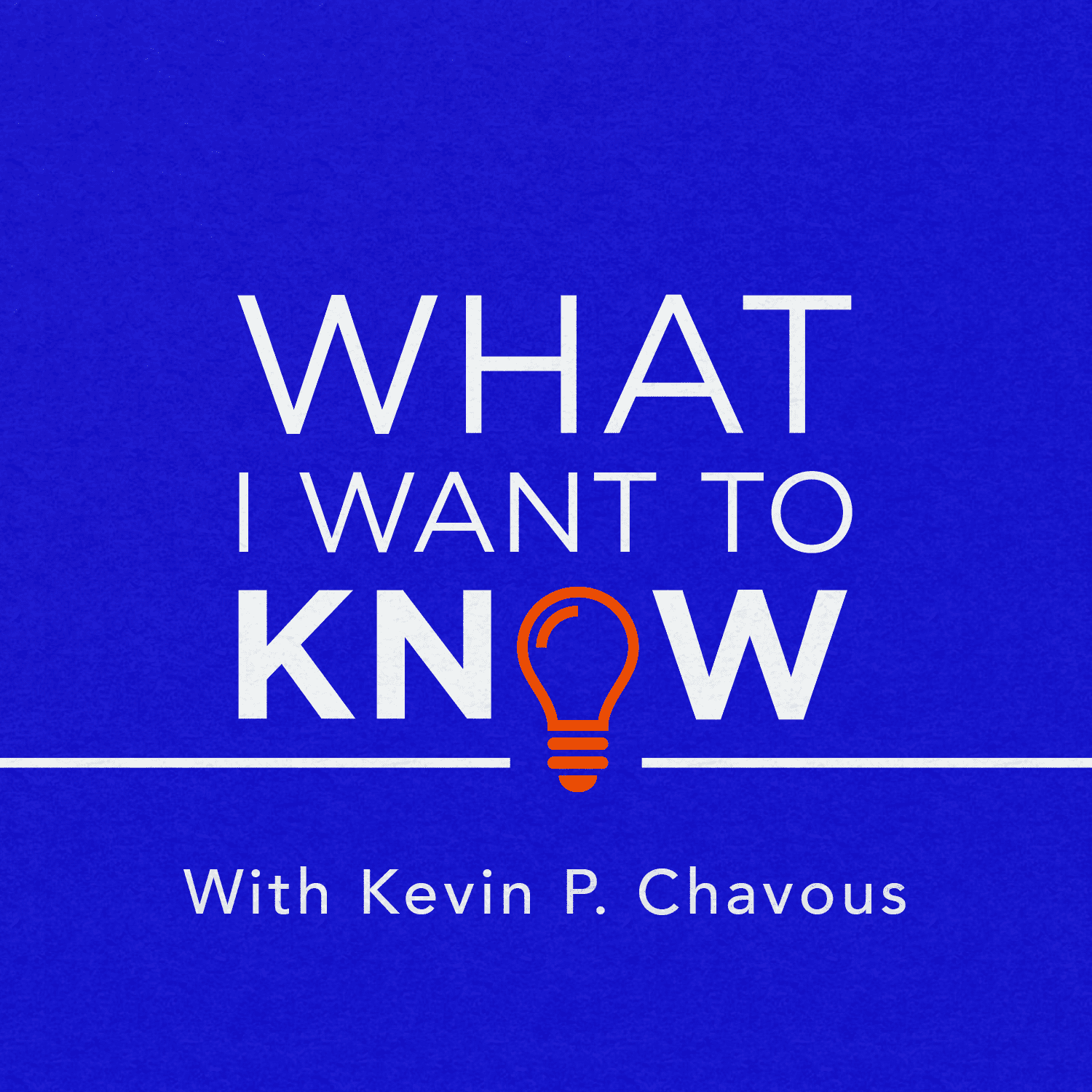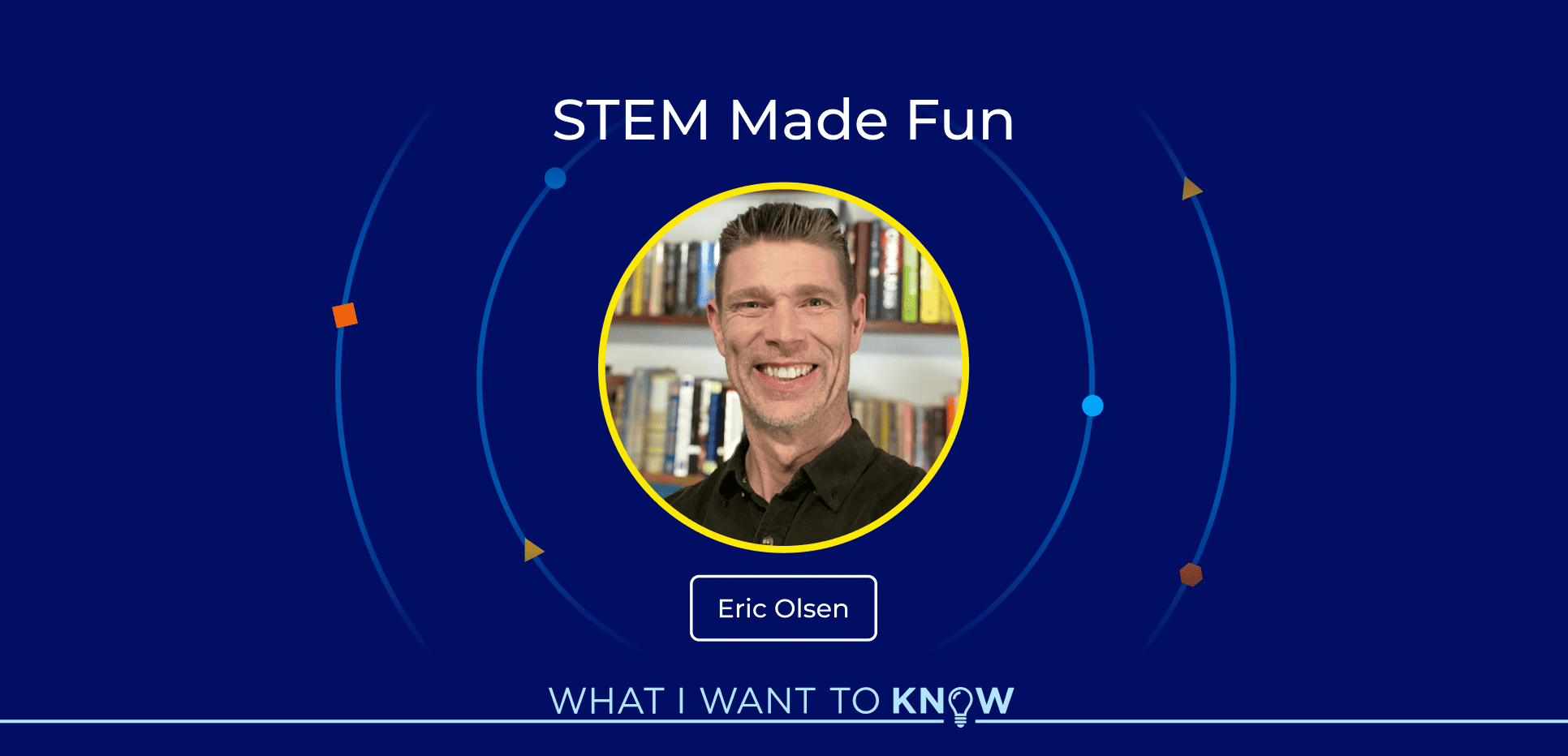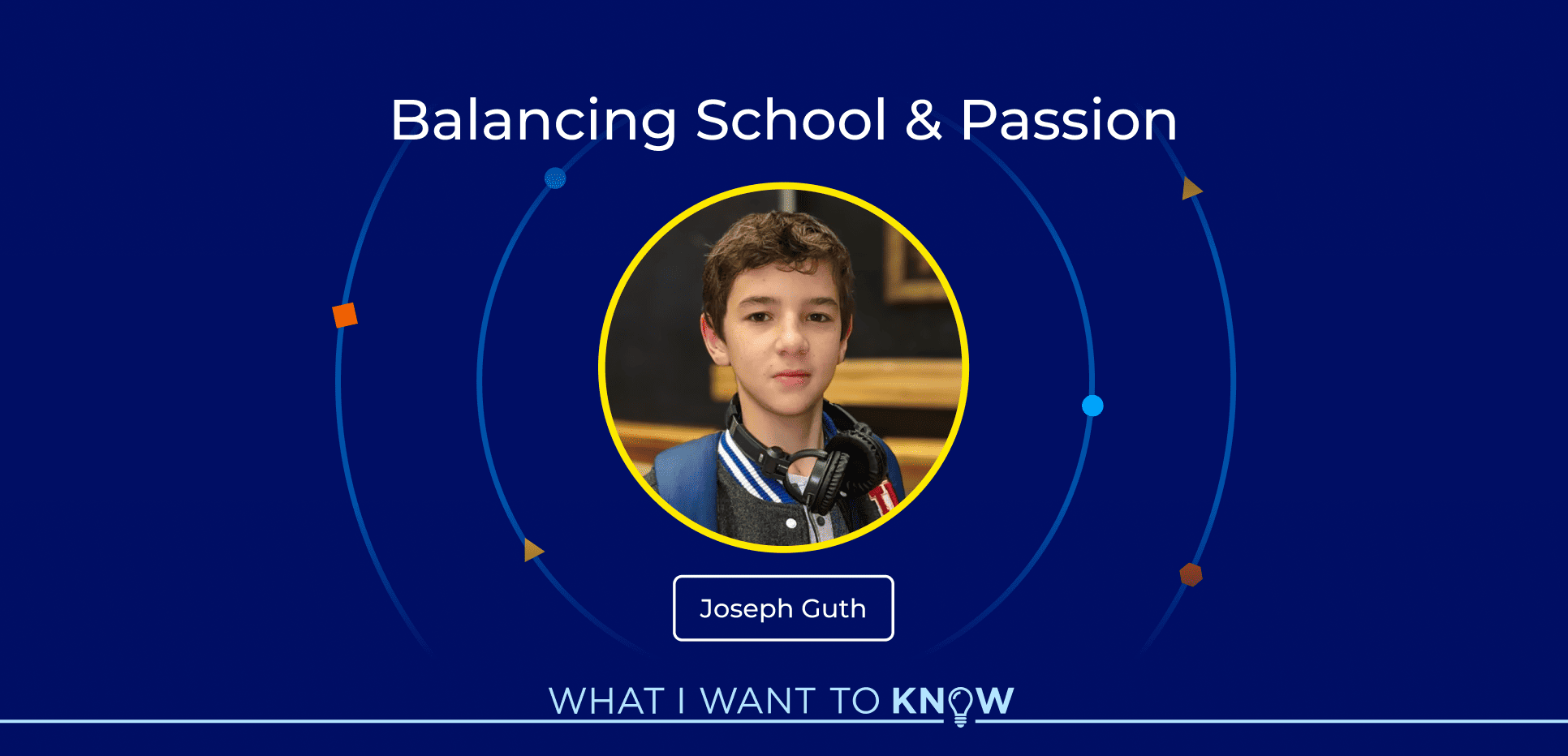A recent study on global service-learning programs revealed that cultural immersion experiences can transform students’ perceptions of themselves and others far beyond what traditional classroom learning provides.
How can we encourage students to be curious about the world outside their local community? How do travel experiences enhance student learning inside the classroom? And what role should schools and teachers have in providing cultural learning opportunities to our students to expand their worldview further?
In this episode, Kevin discusses how to encourage student cultural exposure and learning with Nebraska’s 2020 Teacher of the Year, Megan Helberg.
Listen to the Full Audio
Listen on: Apple Podcast, Spotify
Transcript
Kevin: A recent study on global service learning programs revealed that cultural immersion experiences can transform students’ perceptions of themselves and others, far beyond what traditional classroom learning provides.
How can we encourage students to be curious about the world outside of their local community? How do travel experiences enhance student learning inside the classroom? And what role should schools and teachers have in providing cultural learning opportunities to students to further expand their worldview? This is What I Want to Know. And today, I’m joined by Megan Helberg to find out.
Kevin: Megan Helberg is an English teacher at Loup County Public Schools, her alma mater, located in rural Nebraska, one of the poorest school districts in the nation. In 2020, Megan was selected as the Nebraska Teacher of the Year. Megan is passionate about providing her students with opportunities to learn about other cultures and ways of life. She believes we all can create good in the world, even while planted in a small community. Today, she joins us to discuss how we can encourage students to be curious about the world around them and discover how history might affect our future. Megan, welcome to the show.
Megan: Thank you so much for having me. I’m honored to be here.
Kevin: Well, I’m honored, always honored to have great teachers. You’re a former Nebraska Teacher of the Year. Your work in terms of engaging young people is legendary. But I want to talk to you about where you’re located, because you actually grew up and you are still teaching in a small town. Talk about your hometown of Taylor.
Megan: Sure. It’s easy for me to talk about my hometown of Taylor, Nebraska, population 190. I was born and raised here, went to school here, kindergarten through 12th grade, and received a fantastic, top-notch education that prepared me not just to be in the state of Nebraska. It prepared me to be a citizen of the world.
And I’ve decided to return to Taylor, Nebraska, and be a teacher right here where I grew up, so I can hopefully give that same opportunity for other students that are here in this… We call it the middle of everywhere instead of the middle of nowhere. I like to rephrase that and say the middle of everywhere.
Kevin: Now, how close are you to a big city in terms of just the geography?
Megan: Sure. So we are about four hours away from Omaha, Nebraska. We are two hours away from Grand Island, Nebraska, Kearney, Nebraska, North Platte, Nebraska. So, if we want to go to any major stores, traffic, stop lights, population, we would have to go at least two hours away to the nearest Walmart, as the saying goes.
This is a very heavily agriculture-based community. Farming and ranching are the main employers for our people here. A lot of farms and ranches have been in the families for many years.
Kevin: Now, what do you teach, and what grades are you teaching now?
Megan: I am the only English teacher at Loup County Public School. I teach eighth through 12th grade English. So I get to have a really powerful experience with the students, because I get to build each year with them from the previous year, and I get the opportunity to do that for five whole years. So, you talk about building some pretty powerful units over time that they will never forget. That’s what I’m hoping to do here and what I think I am doing here.
Kevin: Now, you also, though you grew up in a small town, you went away to college. But you took it upon yourself to visit other countries, which has really become a staple for your teaching style with students to make sure they were exposed to other cultures and understood even though they’re from a small community, small-town community, they understood the variety associated with different cultures. Where were some of the places you visited?
Megan: Oh, gosh. I have been very grateful to go all over the world, but I would say that two destinations that really stick out to me are: I went to Rwanda, Africa, in 2018, and I learned about the genocide that occurred there in 1994. But it was much more than just learning about the genocide. It was about justice, forgiveness. What does that look like? How does a country undertake those steps? And on a smaller level, how can I incorporate that into my own life, my school, my community? Because Rwanda has made great gains since the genocide there in 1994. So it was really a trip of hope, of inspiration, a very special trip that touched me deeply in a way that I didn’t really know that I needed or necessarily wanted.
Another one would probably be to the Amazon Rainforest in Ecuador. I went and stayed with an indigenous tribe there, and it was the real deal. It was sleeping out on a cot underneath the canopy of the rainforest. It was cooking all of our food right there with local ingredients. It was taking hikes through the rainforest and really learning to appreciate the beauty of this earth. And I think what I took away the most from that trip is that the native tribe there that were hosting me did not have to preach to me about their way of life and how they take care of the environment. It was just through their actions. And I learned to be a better steward of this world.
Kevin: Now, those are fascinating experiences. And coming from the small town community where you were born and raised and understanding your student population that you serve, how do you incorporate what you learned from those trips, the Amazon, Rwanda, and other places, into your classroom instruction in a way that continues to engage the students you’re serving?
Megan: Well, I know that, personally, I learn the best when I incorporate all five of my senses: when I can see it, when I can hear it, when I can smell it, when I can taste it, and so on, and touch it. And so, as much as I would love to be able to take my students all around the world to these places, that’s just not feasible, even though I sometimes try. I’m not going to quit trying for that. But I want to try to bring back as much as I can of my experiences, but not just tell them about it, but show them about it, bring in some foods, for example, do some cooking with them, try to bring in people that I met from those locations and have them share their stories and experiences.
I could say the same thing, but it’s so much more powerful to hear it from the source or to hear from someone who is from those different parts of the world. And it’s like they’re basically local celebrities when they… I’ve actually had people from around the world come to my classroom right here in Taylor, Nebraska, to help …
Kevin: Wow.
Megan: … share with the students, not necessarily saying that, “This is right,” or, “This is wrong,” but, “This is how I live. And it’s a little bit different from how you live. And you know what? That’s okay.”
Kevin: Yeah. How do your students respond to those kinds of presentations? Because no matter where we live, it could be in a small town or a big city; we tend to have this community focus based on the perspective and the worldview that we grow up in. And we’re in a crazy time politically and just practically, and folks are very sensitive. They’re parochial about their upbringing. And unfortunately, like it or not, a lot of people are closed-minded about opening and receiving different approaches and understanding different lifestyles. How do your students respond to these presentations from people around the world? And how have you seen it affect them even after the guest speakers leave?
Megan: The students really respond well to the guests and visitors to the classroom. One, they’re completely engaged. They are truly listening, which sometimes I feel like even adults have a hard time of truly listening. We’re usually waiting to respond. So I can see the students really engage. They’re listening. They’re taking this stuff in. You can almost see the wheels churning as these people are talking to them about their ways of life.
And I think how it has carried on through the years; we’ve been doing this for a long time now. So throughout the years, students that have already graduated and have gone on to college and are now living wherever throughout the world will message me and say, “You know what? You know who I thought of the other day? So-and-so that you had speak to us when we were juniors. And you know what? I think I finally understood that line that he said at the end of his presentation. It took me 10 years, but I think I finally got it.” That’s a true story that happened just a couple of months ago, I may add.
So it’s stuff like that that’s really, I guess, so amazing and reassuring that sometimes we may not think students are getting it right then and there. And you know what? Sometimes they don’t have to. But as long as they are willing to let it stick with them, as long as they are willing to let it sink in and keep striving towards understanding, I would like to believe that most of them will get there. But they need those opportunities. And I see myself as that person to bring those opportunities to this small rural community.
Kevin: And it is interesting, though, because in some rural communities, one of the challenges, and there are challenges if you work in an urban school district or a rural school district, but one of the challenges of teaching and working in a rural school district or a small town school district is something you’ve addressed head-on that we talked about earlier, is sort of the lack of cultural awareness and lack of cultural diversity, if you will.
So it’s interesting that you focus a lot of your teaching methods on closing that gap. What led you to do that? And I know you traveled around the world and your parents encouraged that. But to make sure that was a big focal point of your teaching delivery style, what motivated you to take that on? Because that is one of the blind spots you see?
Megan: Yes, absolutely. And I feel like for me, if I couldn’t teach these subjects, I probably wouldn’t still be in the classroom, to be quite honest. I feel that strongly about it. And it’s like I tell the kids, “I am not trying to get you to agree or disagree or be on one side or be on the other side. I am simply trying to show you that there is another side, because sometimes in our community we get so focused that we forget that there are other people out there with different viewpoints, with different ways of life.”
And so, I just want to really bring that to the forefront, because I do not want my kids in my community and my school to be in the awful stereotype of, “Oh, those rural hicks, they’re probably uneducated and have never been anywhere or never seen anything.” Oh no. That is not going to be this school. That is not going to be my students.
And I want them, again, to have those opportunities that maybe they wouldn’t have otherwise. And so I really try hard to say, “One of these days, you’re going to leave here, and you are going to encounter people of different races, of different religions, of different sexual orientation. And again, not asking you to agree or disagree with anything, but to simply be kind, be compassionate, be more empathetic.”
But they don’t know how to do that if we’ve never talked about it beforehand. So we shy away so much in our culture of tackling the difficult issues, but here’s how I like to approach it. Everything, it seems like, has to be a debate. There has to be a right and a wrong. I don’t really want to debate anything. I want to discuss everything. So I tell my students, “There’s a difference between debate and discuss. There doesn’t necessarily have to be a right and a wrong, but let’s bring it to the surface and discuss it now, some of your tough questions, questions you may be embarrassed about, stuff you may not know quite how to word correctly. That’s why high school exists. Let’s do it now in an environment where I can help you; we can learn from each other. So then, you are prepared when you leave here to have those difficult discussions if needed.”
Kevin: Yeah, I love that approach. And it is such a challenging time, as you know, for teachers all over the country, because of the either/or, right/wrong, political mindset. I find that in almost every show we talk about it, because as much as we want to keep the politics out of education, education is full of politics.
And, for instance, you’re big on history. I want to ask you about a couple of issues that teachers like you have to face. And it speaks directly to the point you were just making, Megan. You really were fascinated by the Holocaust and making sure that people understood the history. And without getting into it, as you said, I’m going to take a page from your book, right or wrong. How do you deal with these emerging issues in your classrooms? Because they seem to be increasing in volume as opposed to decreasing in terms of just people raising them.
Megan: Exactly. Well, I think the major part of it for me is being honest with my students. Sometimes, I don’t think we give enough credit to teenagers. They are pretty sharp, and they’re going to pick up on things. And so it’s like, “Well, do we want to have this discussion together in a civilized, respectful, mature way, or am I going to just ignore it and let them rely on hearsay from whatever they may be hearing from news, social media, other people?”
And so I think for me, the biggest step is honesty, courage, vulnerability, knowing that I myself do not have all the answers, I myself am confused a lot of the times about why this or that is happening, and knowing that we don’t have to have all of the answers per se to still shift our minds and hearts. And we can do that as we go. We will continue to figure out more information.
But I do think it’s so important for me to be prepared and do my own research. For example, with the Holocaust, you can’t just start reading day one a book about the Holocaust. There has to be appropriate foundational knowledge laid before you can go into something like that. And I think that’s where there have been some mistakes, maybe, in teaching, where we assume that the students maybe know too much. But I want to make sure that I’ve laid that appropriate foundation. So we do several activities before we even flip open page one of the book and let kids know that Jewish life was so much more than just the Holocaust, that there was a rich, vibrant Jewish community before the Holocaust and post-Holocaust, and making sure that I’m not just taking a very narrow glance at what I’m teaching, but making sure they can see the whole broad picture of before, during, and after.
But that requires some groundwork on my part, and that is what has led me to the Holocaust Museum in D.C. and many other institutions where I know I am receiving top-notch information that’s been heavily vetted, and then teaching that skill to my students. All this stuff is transferable about how to go about research and deciphering information.
I would say that the initial response amongst the majority of students is they just don’t want to talk about it. They would just rather be quiet. They’re a little fearful to raise their hand, or they’re a little fearful to be the one to start the conversation, to jump in. But I think that goes along with — Being a great teacher, as all teachers know, starts with building relationships and building trust.
And so I have to do that first, and that takes time. Once the students know that they can trust me, that we can have open vulnerable conversations in here, then you’ll start to see more and more of them want to speak up. That’s when I see students come in and say, “Did you see this on the news last night?” or, “I saw this article today on Instagram,” or whatever. So then it switches, where they’re almost coming to me with the information that they would like to talk about, which is exactly what you hope for as a teacher.
But I have to remember that, especially with today’s students, we have to be able to make that connection of today and why it is important for them today, so definitely going down those roads and avenues to make those connections with students, and not just with the Holocaust, but with a variety of topics.
Kevin: Yeah. That’s really, really a great point. Megan, I have one last question. This is what I really want to know. And it relates to bringing the world to the classroom.
Megan: Yeah.
Kevin: And you’ve been able to do that, but some teachers may hear you and say, “Well, I haven’t had a chance to visit the world. I haven’t built relationships to bring in guest speakers.” What kind of advice would you give to underfunded school districts or schools as to the best ways to bring the world to their classrooms?
Megan: What it has been for me and what I encourage other teachers to do is find your passion and blend it with your profession. For me, that is travel, that is learning about the Holocaust and genocide. But for other teachers, it may be something else. And I feel like there’s a huge disconnect right now, and we’re seeing teachers leaving the profession. And I wish that I could tell those teachers, “Find what you really enjoy even outside of the classroom and find a way to bring it into the classroom, because you can find ways to weave that into your lesson plans, into your day-to-day, into getting those standards that don’t necessarily cost any money. But it’s keeping you motivated. It’s keeping your heart and mind going. And then your students are going to see that, and it’s going to get them excited.”
So I feel like the more that you understand about your own passion, whatever it may be, you’re going to do research on that. That’s going to make you learn over here about this, and then you can bring that in where it’s going to lead. What I do most of the time in my classroom costs nothing extra. It costs nothing extra to video chat with friends that you’ve met around the world. It costs nothing extra to have conversations with your students that are vulnerable and take courage. It costs nothing extra to have a supportive administrator, which I am very blessed to have, and to be willing to talk openly with your administrator about the vision you have for your classroom.
And it’s just amazing that it also costs nothing extra to bring in the community. Not only do your students need to be reading certain books, but I have parents, and a woman at the gas station said, “One of your kids came in and said they’re reading this really good book. Do you have an extra copy? Could I read it, too?” Absolutely. That costs nothing extra. So I think the key is looking at your school as, yes, that’s the school, and that’s where the focus is, but go that extra step and bring in the community, and you’ll find that we can learn from each other and blend our passions with our professions, where it’s enjoyable for me on a day-to-day basis, it’s hopefully enjoyable for my students on a day-to-day basis, but it’s also helping the community at large.
Kevin: Yeah. Well said. Megan Helberg, thank you so much for all that you do, and thank you for joining us on What I Want to Know.
Megan: Thank you so much for having me.
Kevin: Thanks for listening to What I Want to Know. Be sure to follow and subscribe to the show on Apple Podcasts, Spotify, or your favorite podcast app so you can explore other episodes and dive into our discussions on the future of education. And write a review of the show. I also encourage you to join the conversation and let me know what you want to know using #WIWTK on social media. That’s #WIWTK. For more information on Stride and online education, visit StrideLearning.com. I’m your host, Kevin P. Chavous. Thank you for joining What I Want to Know.
Meet Megan
Megan Helberg is an English teacher at Loup County Public School, her alma mater in rural Nebraska, and was selected state Teacher of the Year in 2020.
She is passionate about providing her students opportunities to learn about other cultures and ways of life. Megan believes we can all create good in the world, even while planted in a small community.






